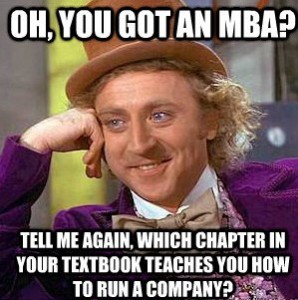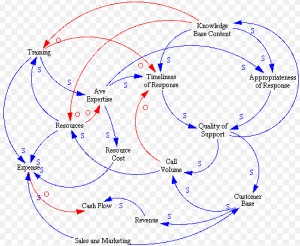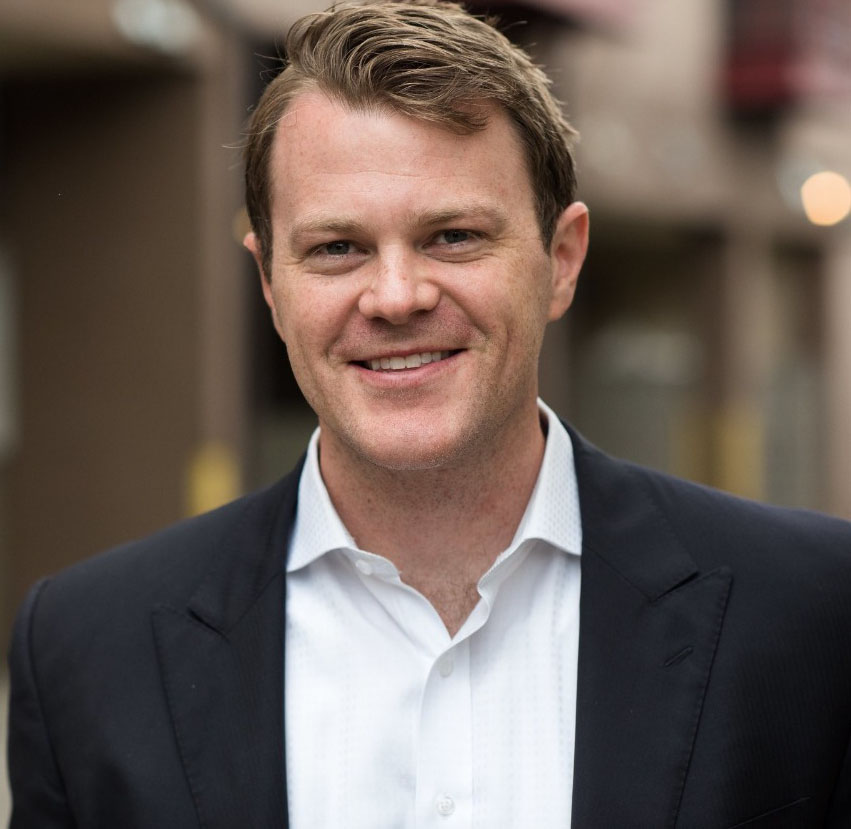I guess hindsight really is 20/20. This blog post and the following are about the biggest surprise lessons of my MBA program at University of Denver. Although I paid a pretty penny, I’ve been very happy with the timing and lasting value of the program.

Now a few years after graduation, I can look back and fully appreciate one of the frameworks that was drilled into us throughout the curriculum – systems thinking. At the time, I didn’t fully understand why our core curriculum centered around the topic. Nearly every class referred, reinforced and revisited this model of analysis.
These days I work in online marketing with small to medium sized businesses. And every day I see the ability to use this framework as a key differentiator between the best employees, business owners, and marketing plans. Someone who effectively uses systems thinking has the advantage of seeing the big picture and making decisions with greater insight. These are the teammembers who rise above the noise to solve big problems versus the frustrated ones who do the same thing over and over expecting different results; or the business owner who creates an opportunity by seeing a gap in the marketplace and creating a profitable solution; or the account manager who thinks about the entire customer engagement versus simply the marketing piece. Overall, I would define systems thinking as the ability to see the big picture and evaluate entire situations versus focusing on one factor or variable.

(visual example of systems thinking model applied)
Part of the reason it’s so important to know how to apply an analytical model outside the classroom has to do with today’s workplace – it’s ever changing. Our parents may have done the same job for 20 years or earned a decent salary with a college degree and a technical skillset. Those days are gone. Now businesses or entire industries change in the blink of an eye, and the people who are the most valued are the ones who can adapt and connect the dots to create opportunity. In fact, Thomas Friedman, NY Times write and best selling author, actually wrote an article recently about today’s education system and it’s need to adapt to instruct creative thinking.
Looking back I’m grateful that our curriculum ingrained a method for analysis that is so timeless and universal. We studied accounting methods that have since been changed and many of our case studies revolved around now extinct companies like Circuit City. The degree may collect dust and I’ll forget most the buzzwords, but the usefulness of a few lessons gets stronger every day.
Thoughts? Looking back, what are the lessons or classes that you find most applicable from undergrad or masters work? Tune in next week when I discuss part two and another classic lesson.


